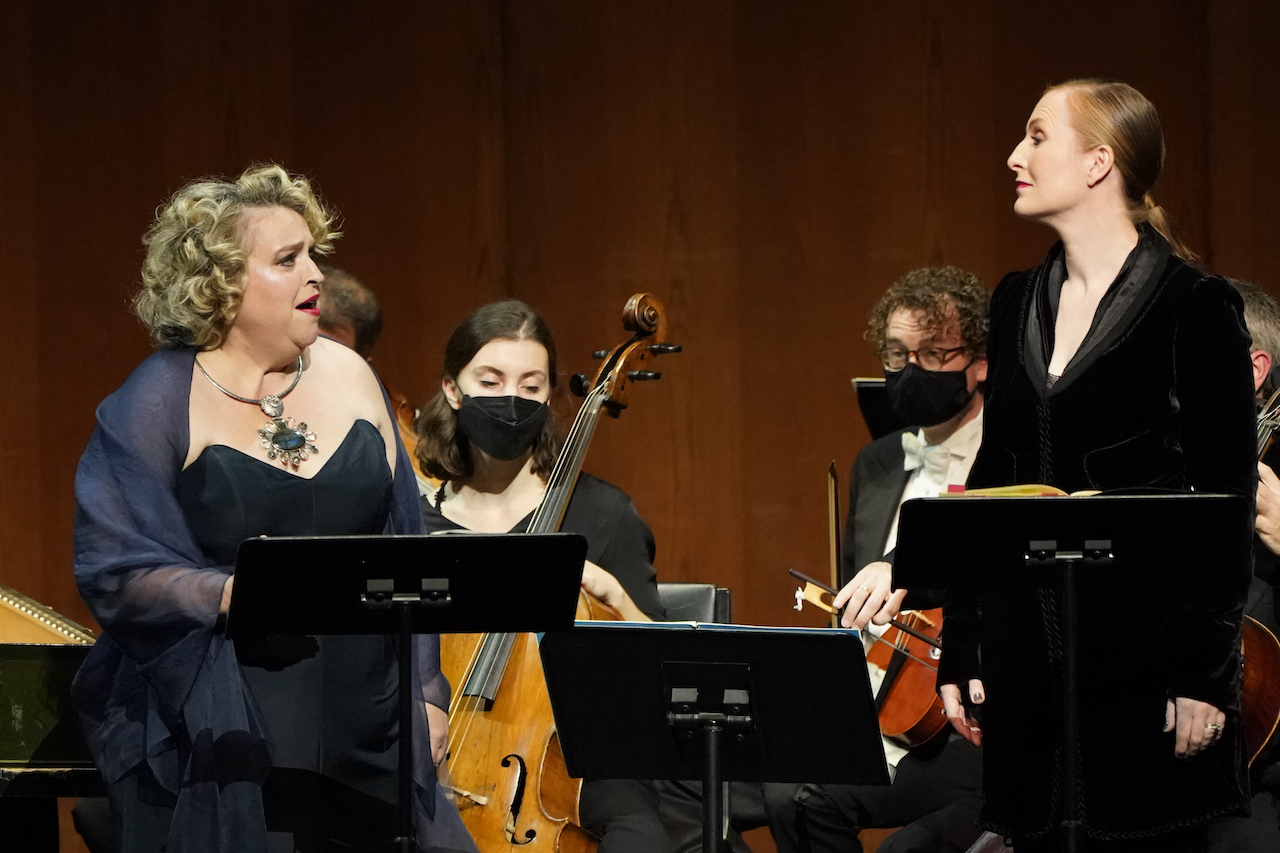 United States Handel, Alcina (concert performance): Soloists, The English Concert / Harry Bicket (conductor, harpsichord), Los Angeles Opera, Los Angeles, 5.11.2021. (LV)
United States Handel, Alcina (concert performance): Soloists, The English Concert / Harry Bicket (conductor, harpsichord), Los Angeles Opera, Los Angeles, 5.11.2021. (LV)

Alcina – Karina Gauvin
Ruggiero – Paula Murrihy
Morgana – Lucy Crowe
Bradamante – Elizabeth DeShong
Oronte – Alek Shrader
Melisso – Wojtek Gierlach
Since 2014, there have been as many as 17 important productions of Alcina. Earlier this year there was an ‘Alcina abrégée mais enchantée’ at the Opéra National du Rhin in Strasbourg. In 2022, Glyndebourne will present Francesco Micheli’s ‘sumptuous’ new staging, originally scheduled for 2020, with Jonathan Cohen conducting the Orchestra of the Age of Enlightenment, and Jane Archibald and Ying Fang as the sorceress sisters. Along the way, the Royal Academy of Music in 2016 relocated Alcina to an S&M club in London; three years later, Cecilia Bartoli starred in Damiano Michieletto’s new production at the Salzburg Festival.
It was with a refreshing sense of purity that Harry Bicket brought The English Concert to town for two concert performances. The minimal stage business gave the singers the opportunity to focus on developing characters through the music alone; the lack of masks and costumes led to a club-like intimacy that brought with it absorption and intensity. The amorphous succession of recitatives, songs and arias held the audience, which in LA typically feels as if most had dropped in on their way to somewhere else, breathless, overwhelmed by the music’s sheer beauty and the direct charisma of the onstage personalities.
The four women were as theatrical as the staging needed, the extreme contrasts of their physical dimensions, like different experiments with Lewis Carroll drugs, were extruded along with the music they sang into vivid caricatures of their personas. It was enough to maintain continuity, while the process and its grinding effects on Alcina became the whole point of the opera.

Karina Gauvin, who recorded Morgana to Joyce DiDonato’s Alcina in 2009 (with l Complesso Barocco conducted by Alan Curtis), had a Bette Midler presence, and was prone to being very quiet and tearing the scenery with her anger. But mostly, it was about exploring the vast dimensions of Handel’s great da capo arias where the repeat bars get lost amid the embellishments, improvised or written out. Her vulnerability in loving and heartbreak at losing Ruggiero were so palpable that there was no need to find a theatrical way to justify what her long melismas were about. Everything she and Lucy Crowe’s Morgana touched, every note, were things, as Handel intended them to be, things of gorgeous beauty. Crowe nailed the stratospheric pyrotechnics with effortless, light-hearted glee and irresistible, sexually charged innocence.
Paula Murrihy made a strong case for what Ruggiero must be, as each bout of emotional involvement, torment, confusion and sacrifice stretches his ability to accommodate such contradictory emotional demands. Bewitched or bewildered, the stylistic integrity and command with which she sang her eight arias throughout the ordeal was the rock on which the opera stood. Elizabeth DeShong’s Bradamante began brilliantly as a man singing at impossibly breakneck speeds matched semiquaver for semiquaver by the musicians, but as a woman she got lost unfairly in the opera’s Bermuda love triangle.
The orchestra was razor sharp, impeccable in ensembles with well-judged, full, rich timbres. The violin and cello solos were exquisite. The cellos and bass had a growling presence when needed, the bass player was a poet in his continuo work, and the theorbo player added immeasurably by varying the textures and moods with subtle illuminating touches that could be heard throughout the hall.
Laurence Vittes
